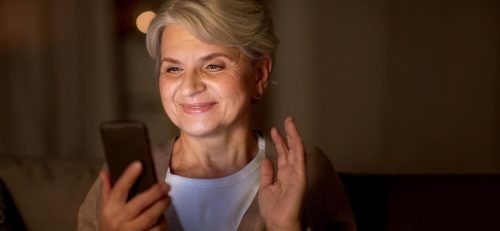Publication
Behavioral gender differences have been found for a wide range of human activities including the way people communicate, move, provision themselves, or organize leisure activities. Using mobile phone data from 1.2 million devices in Austria (15% of the population) across the first phase of the COVID-19 crisis, we quantify gender-specific patterns of communication intensity, mobility, and circadian rhythms. We show the resilience of behavioral patterns with respect to the shock imposed by a strict nation-wide lock-down that Austria experienced in the beginning of the crisis with severe implications on public and private life. We find drastic differences in gender-specific responses during the different phases of the pandemic. After the lock-down gender differences in mobility and communication patterns increased massively, while circadian rhythms tend to synchronize.
In particular, women had fewer but longer phone calls than men during the lock-down. Mobility declined massively for both genders, however, women tend to restrict their movement stronger than men. Women showed a stronger tendency to avoid shopping centers and more men frequented recreational areas. After the lock-down, males returned back to normal quicker than women; young age-cohorts return much quicker. Differences are driven by the young and adolescent population. An age stratification highlights the role of retirement on behavioral differences. We find that the length of a day of men and women is reduced by one hour. We interpret and discuss these findings as signals for underlying social, biological and psychological gender differences when coping with crisis and taking risks.
Tobias Reisch, Georg Heiler, Jan Hurt, Peter Klimek, Allan Hanbury, Stefan Thurner, “Behavioral gender differences are reinforced during the COVID-19 crisis,” Scientific Reports 11 (2021) 19241
Related

Signup
| Cookie | Duration | Description |
|---|---|---|
| cookielawinfo-checkbox-analytics | 1 year | Set by the GDPR Cookie Consent plugin, this cookie records the user consent for the cookies in the "Analytics" category. |
| cookielawinfo-checkbox-functional | 1 year | The GDPR Cookie Consent plugin sets the cookie to record the user consent for the cookies in the category "Functional". |
| cookielawinfo-checkbox-necessary | 1 year | Set by the GDPR Cookie Consent plugin, this cookie records the user consent for the cookies in the "Necessary" category. |
| CookieLawInfoConsent | 1 year | CookieYes sets this cookie to record the default button state of the corresponding category and the status of CCPA. It works only in coordination with the primary cookie. |
| PHPSESSID | session | This cookie is native to PHP applications. The cookie stores and identifies a user's unique session ID to manage user sessions on the website. The cookie is a session cookie and will be deleted when all the browser windows are closed. |
| viewed_cookie_policy | 1 year | The GDPR Cookie Consent plugin sets the cookie to store whether or not the user has consented to use cookies. It does not store any personal data. |
| Cookie | Duration | Description |
|---|---|---|
| mec_cart | 1 month | Provides functionality for our ticket shop |
| VISITOR_INFO1_LIVE | 6 months | YouTube sets this cookie to measure bandwidth, determining whether the user gets the new or old player interface. |
| VISITOR_PRIVACY_METADATA | 6 months | YouTube sets this cookie to store the user's cookie consent state for the current domain. |
| YSC | session | Youtube sets this cookie to track the views of embedded videos on Youtube pages. |
| yt-remote-connected-devices | never | YouTube sets this cookie to store the user's video preferences using embedded YouTube videos. |
| yt-remote-device-id | never | YouTube sets this cookie to store the user's video preferences using embedded YouTube videos. |
| yt.innertube::nextId | never | YouTube sets this cookie to register a unique ID to store data on what videos from YouTube the user has seen. |
| yt.innertube::requests | never | YouTube sets this cookie to register a unique ID to store data on what videos from YouTube the user has seen. |
| Cookie | Duration | Description |
|---|---|---|
| _ga | 1 year | Google Analytics sets this cookie to calculate visitor, session and campaign data and track site usage for the site's analytics report. The cookie stores information anonymously and assigns a randomly generated number to recognise unique visitors. |
| _ga_* | 1 year | Google Analytics sets this cookie to store and count page views. |
| _gat_gtag_UA_* | 1 min | Google Analytics sets this cookie to store a unique user ID. |
| _gid | 1 day | Google Analytics sets this cookie to store information on how visitors use a website while also creating an analytics report of the website's performance. Some of the collected data includes the number of visitors, their source, and the pages they visit anonymously. |